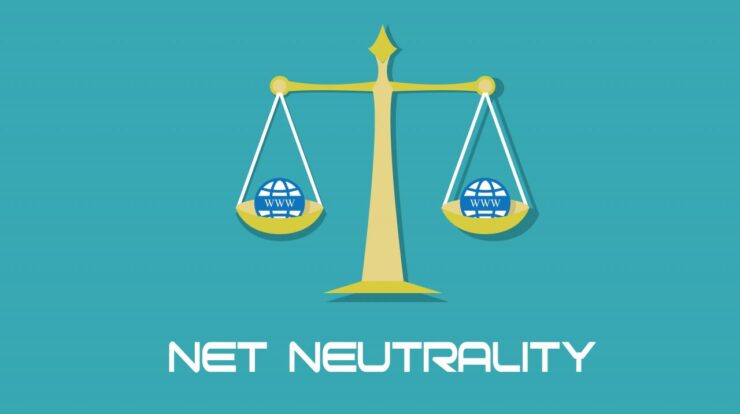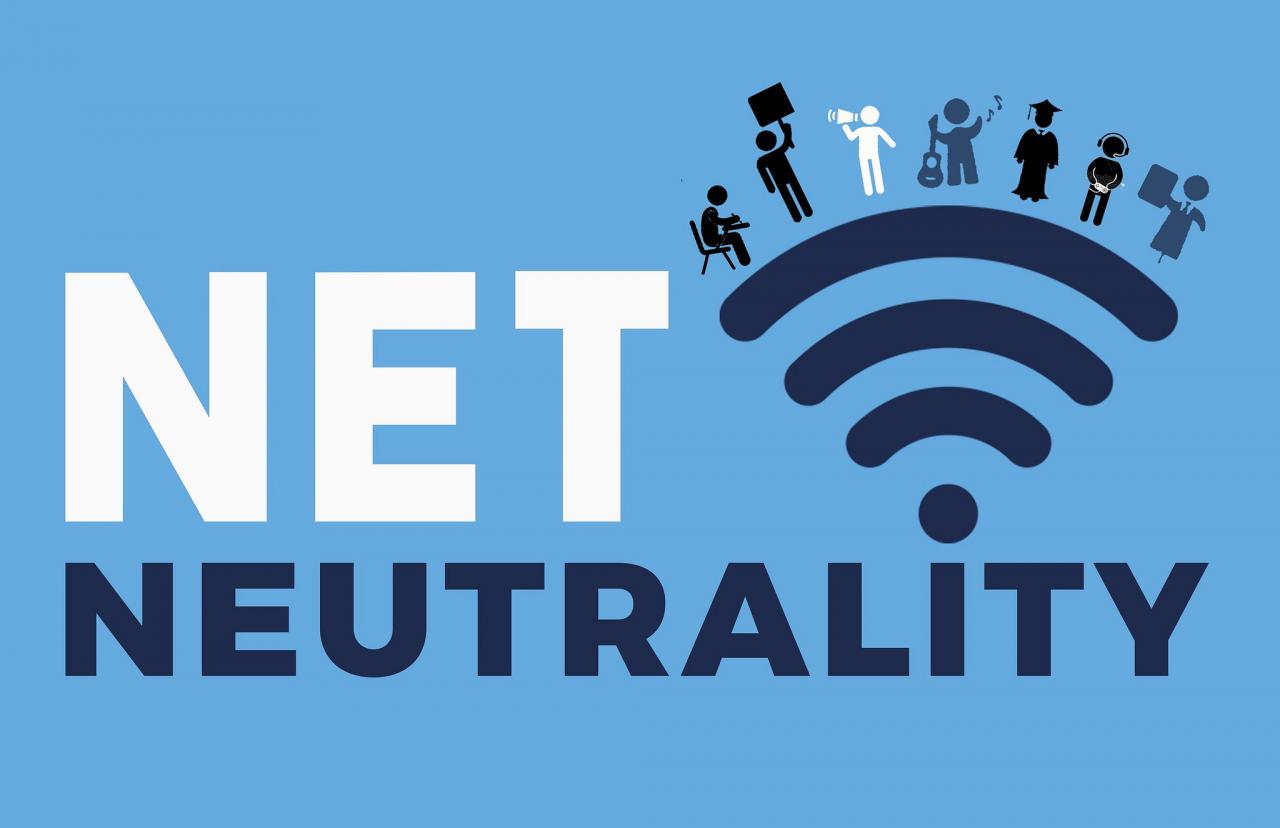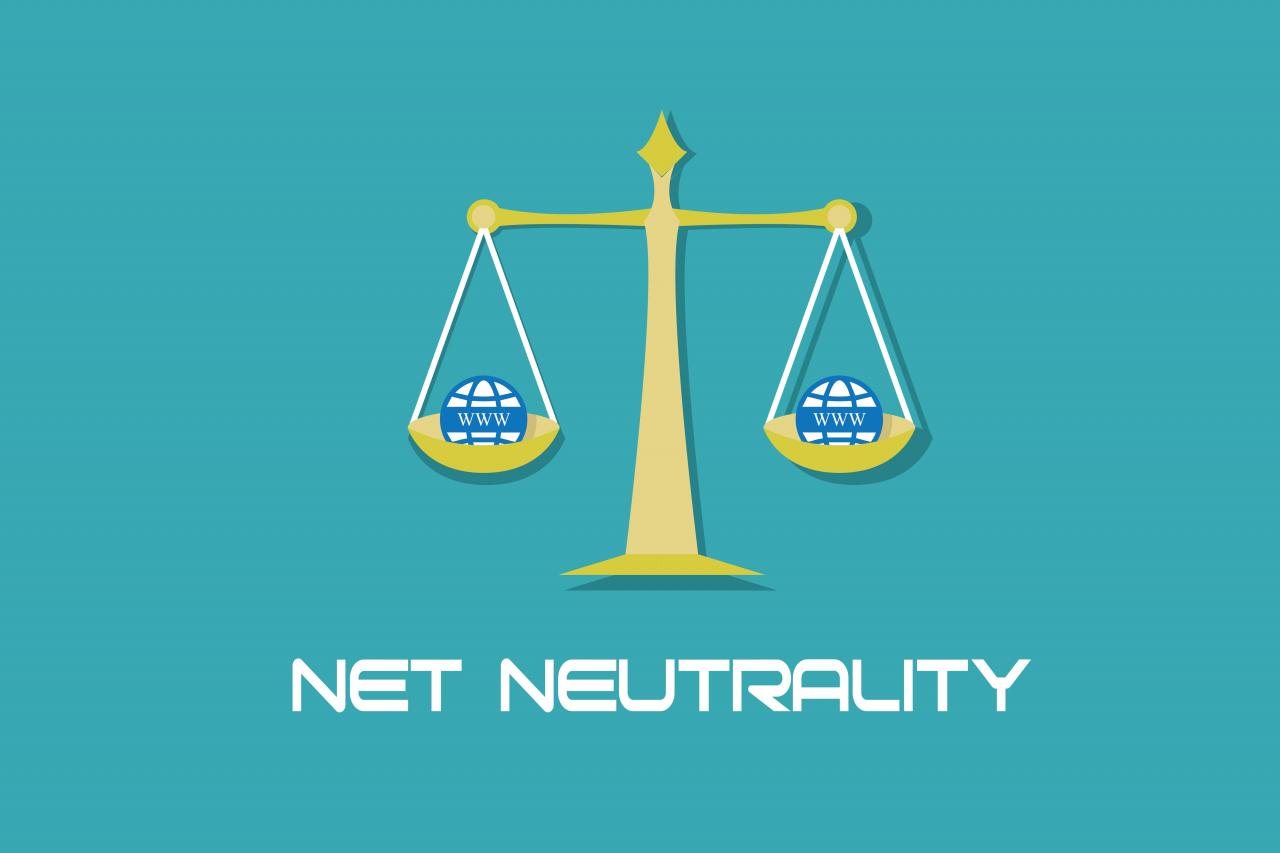
As net neutrality definition takes center stage, this opening passage beckons readers into a world crafted with journalistic flair and a distinct news tone, ensuring a reading experience that is both absorbing and distinctly original.
Net neutrality, a concept that advocates for equal treatment of all internet traffic, has sparked global debates and ignited discussions about the future of the internet. This comprehensive guide delves into the intricacies of net neutrality, exploring its definition, significance, history, and the arguments that shape its discourse.
Definition of Net Neutrality
Net neutrality is the principle that internet service providers (ISPs) should treat all internet traffic equally, regardless of its source, destination, or content.
In other words, net neutrality means that ISPs cannot block, throttle, or discriminate against any website or online service. This ensures that consumers have equal access to all content and services on the internet.
Key Principles of Net Neutrality
- No blocking:ISPs cannot block access to any website or online service.
- No throttling:ISPs cannot slow down the speed of access to any website or online service.
- No discrimination:ISPs cannot charge different prices for access to different websites or online services.
Importance of Net Neutrality: Net Neutrality Definition

Benefits for Consumers
- Equal access to information:Net neutrality ensures that everyone has equal access to all information on the internet, regardless of their income or location.
- Freedom of speech:Net neutrality protects freedom of speech on the internet by ensuring that all voices can be heard, regardless of their size or popularity.
- Innovation:Net neutrality encourages innovation by allowing new businesses and entrepreneurs to compete on a level playing field with large corporations.
Potential Consequences of Weakening Net Neutrality Regulations, Net neutrality definition
- Less competition:If ISPs are allowed to discriminate against certain websites or online services, it could lead to less competition and higher prices for consumers.
- Censorship:If ISPs are allowed to block or throttle access to certain websites or online services, it could lead to censorship and the suppression of dissenting voices.
- Stifled innovation:If ISPs are allowed to charge different prices for access to different websites or online services, it could stifle innovation and make it more difficult for new businesses to compete.
Last Recap

The future of net neutrality remains uncertain, with technological advancements and shifting regulatory landscapes posing both opportunities and challenges. As the digital realm continues to evolve, the principles of net neutrality will undoubtedly remain at the forefront of discussions, shaping the way we access and experience the vast expanse of the internet.
FAQ
What is the core principle of net neutrality?
Net neutrality ensures that all internet traffic is treated equally, regardless of its source, destination, or content.
Why is net neutrality important for consumers?
Net neutrality protects consumers from discrimination and ensures fair competition among internet service providers.
What are the potential consequences of weakening net neutrality regulations?
Weakening net neutrality regulations could lead to internet service providers prioritizing certain content or services, resulting in slower speeds or higher costs for consumers.





